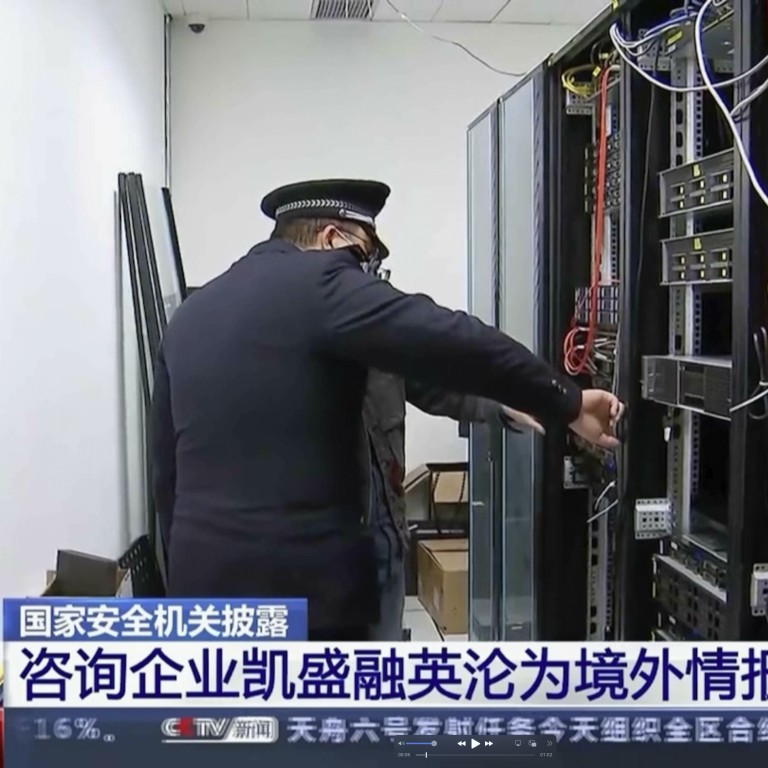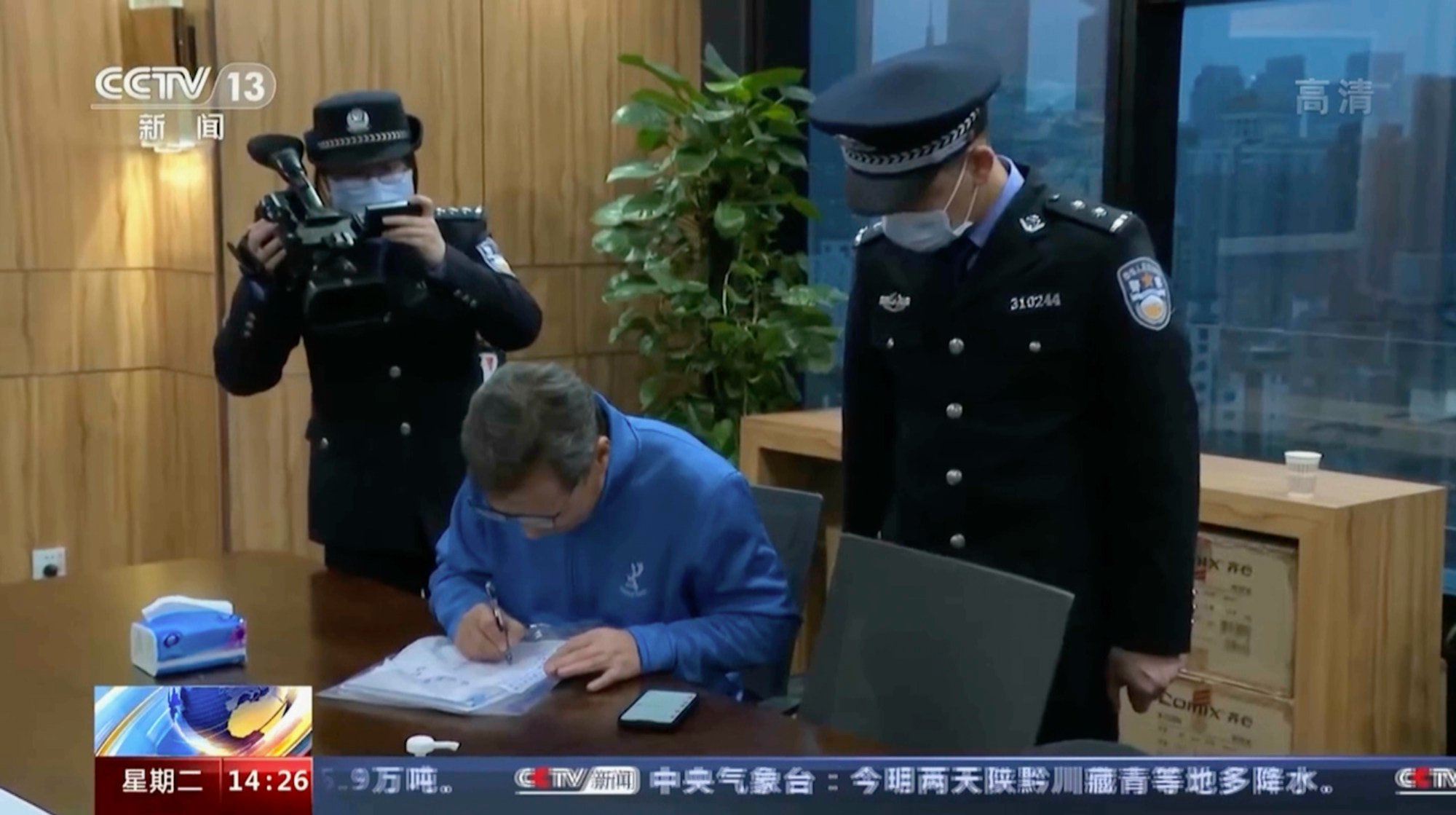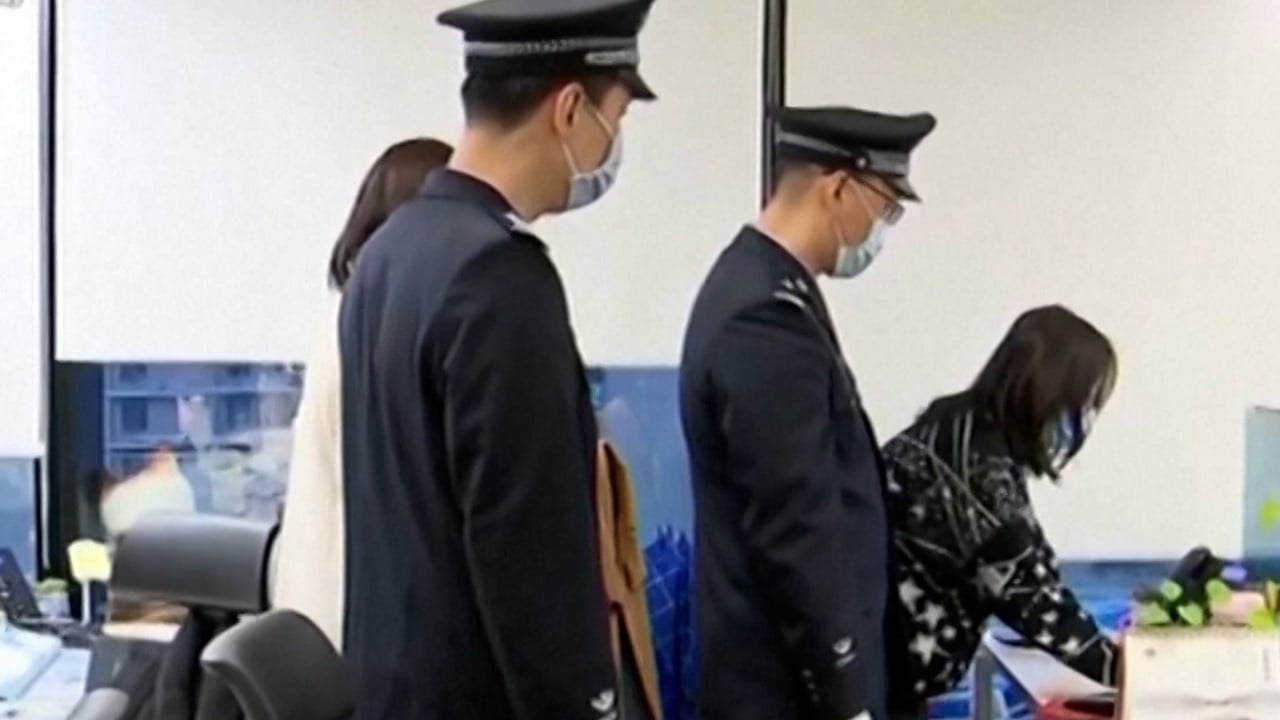
Chinese Communist Party’s mouthpiece issues national security warning to foreign firms after Capvision raids
- An editorial in People’s Daily says the country will take a ‘zero tolerance’ approach to efforts to hand over information on sensitive industries
- Capvision has been accused of helping to leak information about military technology and its offices in four cities were raided earlier this month
In an editorial published after the raids, People’s Daily said an investigation had found the US and Shanghai-based company took on projects from “a large number of companies that are related to China’s sensitive industries”.
The article described national security as “the root of the country’s interest” and said some of the company’s clients had close links with “foreign governments, militaries and intelligence units”.
“Under normal logic, Capvision – a leading consulting firm in the industry – should understand the concepts of risks and baselines,” the article said.
“There are 300,000 experts in Capvision’s database. If it isn’t aware of the red line, how many possible risks are hovering out there?”
China’s consultancy crackdown is scaring away investors, experts warn
The warning comes after authorities raided the company’s offices earlier this month, questioning staff and inspecting items found at Capvision Partners (Shanghai)’s branches in Shanghai, Beijing, Suzhou and Shenzhen.
The firm has been accused in state media of helping to leak information about the Chinese military technology industry to foreigners.
The People’s Daily article said publicly available information showed the consulting firm had “a lot of problems” and had “helped its clients convince experts to release confidential information”.
It said one person listed in the database named Han had been reluctant to provide details but was offered a consulting fee that was two times higher than the previous offer.
The article said it was “a fact” that some consulting firms “deliberately choose” specialists in core and sensitive industries to provide information to foreign institutions and warned China had “zero tolerance” for this practice.
Gabor Holch, an intercultural leadership consultant in Shanghai, said steering round sensitive issues had been part of doing business in China since the early 2000s.
“I personally helped many corporate leaders navigate this minefield, from obvious political taboos to minute references such as country lists and images in brochures,” said Holch, who is also an author of a forthcoming book on foreign managers in China.
“In past decades, definitions of strictly off-limits topics became clearer and embedded in published laws, something that was missing in the early days.”
He said that nowadays executives had to be more “vigilant than before to avoid sensitive issues that can put their firms in jeopardy”.
Bain offers China staff voluntary leave amid national security crackdown
Cameron Johnson, a partner at consulting firm Tidal Wave Solution based in Shanghai, said the meaning of national security was “ambiguous” and companies would need to have “world-class government relations team to understand areas of concern and sensitive information”.
Johnson said the China market was still a top priority for most multinational companies and executives would have to stay on top of the regulations.
“CEOs and boards will need to spend more time in the country to understand what is going on, and companies will need to spend more time, effort, and money” to understand the rules, he said.
He also said China was not the only country to investigate companies that may breach national security laws because “many countries and regions including the United States and European Union are also implementing similar requirements”.

Holch said: “Foreign firms must make sure to appoint politically able and well-informed, preferably Mandarin-speaking, executives to their [Chinese] businesses as opposed to technical problem-solvers typical a decade ago.
“Most importantly, China’s restrictive information environment demands that foreign and local managers at multinationals share information and keep their firms agile but legally compliant.”


